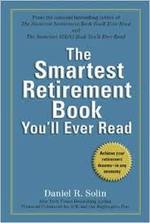
Photo courtesy of Flickr.
I had an interesting experience recently. I gave a talk to a group of investors. In the audience were a few brokers. My presentation consisted of two basic points:
1. Send an email to your broker or financial advisor and ask them simply to confirm that they will always put your interests above their own or those of their firm.
2. Trying to "beat the market" is folly.
The conflicts issue
I thought the first point was a no-brainer. Not for the brokers. They accused me of being "very simplistic" and raising a "canard." They tried to politicize the issue by invoking "Obama's Department of Labor." They said many brokers do a "wonderful job" for their clients. One broker objected to my use of the term "broker." I asked him what he wanted to be called. He said, "Wealth advisor."
I then asked if he thought clients using a "wealth advisor" had a right to know if their "wealth advisor" had conflicts of interest and, if so, whether the "wealth advisor" should be obligated to resolve those conflicts in favor of the client.
He never answered the question. Instead, he asked me if I disclosed conflicts that I might have in my books and blogs. I told him I do.
After my talk, many of the attendees approached me and told me they had no idea their brokers were allowed to have conflicts of interest, much less to resolve them against the best interests of their client. Their views are consistent with surveys that have found the overwhelming majority of investors believe brokers are required to put their clients' interests first.
If you are one of those investors, sending the email I described above is a surefire way to find out.
I have not heard of a case, at least in my experience, where a broker has replied in writing that they have an obligation to put an investor's interests ahead of their own.
The lack of expertise
Even if you are fine with receiving conflicted advice (and not even being made aware of the conflicts), you are no doubt interested in the expertise of your broker. The evidence continues to mount, however, that "beating the market," while not impossible, is so difficult that it makes little sense to try.
An essential argument for using a broker is the purported complexity of investing. They will tell you their analysts have the ability to incorporate factors like dividend yield, price-earnings ratios and the cyclically adjusted price-earnings ratio to forecast long-term stock returns. They believe the use of these variables can generate "valuation signals" that enable you to implement a successful asset allocation strategy, presumably bouncing in and out of stocks (and generating commissions in the process).
It's a nice theory, and it drives a lot of investors into the waiting arms of brokers.
A recent study looked at 95 years of data between 1920 and 2014. The authors concluded that, while these variables may be useful in forecasting long-term returns, "valuation‐based strategies and the much simpler 60‐40 static portfolio have had very similar performance, before transaction and tax costs." I would assume that, after transaction and tax costs, the simple static portfolio outperformed.
Here's the bottom line of the study:
"Simplicity is often underrated; simple static strategies (balanced portfolios) have been shown to perform well, and often better, than more complex strategies in a wide variety of settings. They also require from investors less information, less knowledge, and less work to remain on track, and nowadays they even come neatly packaged in low‐cost index funds and ETFs."
There is another benefit to implementing a simple, index-based investment strategy. You don't have to deal with emperors with no clothes who often dispense conflicted advice.
If you want to fundamentally change the way you invest, I tell you exactly how to do so in an article I wrote in 2007. The advice is as relevant today as it was then.
 Dan Solin is a New York Times bestselling author of the Smartest series of books, including The Smartest Investment Book You'll Ever Read, The Smartest Retirement Book You'll Ever Read and his latest, The Smartest Sales Book You'll Ever Read.
Dan Solin is a New York Times bestselling author of the Smartest series of books, including The Smartest Investment Book You'll Ever Read, The Smartest Retirement Book You'll Ever Read and his latest, The Smartest Sales Book You'll Ever Read.
The views of the author are his alone and may not represent the views of his affiliated firms. Any data, information and content on this blog is for information purposes only and should not be construed as an offer of advisory services.
